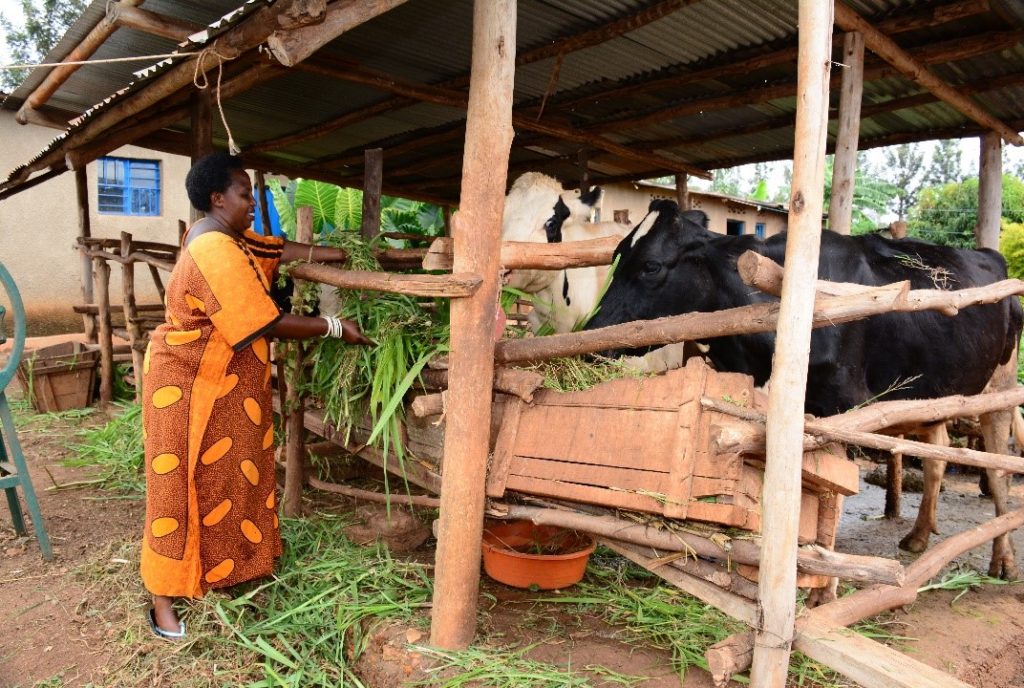
Further to the publication of the new Strategic Plan of Survivors Fund (SURF) for 2024 to 2028, we will be publishing several posts to provide more context of our work – and implications for the the survivors of the genocide against the Tutsi in Rwanda which we support.
Social Protection
Rwanda has instituted a robust framework for social protection, spearheaded by strategic policies and programs that aim to assuage poverty and vulnerability across the populace. The Rwandan government has prioritized social protection as a pivotal component for sustainable development and poverty reduction. The National Social Protection Policy and the National Social Protection Strategy serve as overarching guides, delineating the principles, targets, and mechanisms for enhancing social welfare.
FARG, Fonds d’Appui aux Rescapés du Génocide (Genocide Survivors Support and Assistance Fund), was a parastatal organisation set up in 1998 to provide vulnerable genocide survivors with support in of education, health, shelter, social assistance and income generation. Since 2005 with the adoption of the National Social Protection Strategy, many of the areas of support previously delivered by FARG were channelled through other agencies. In 2021 FARG was formally dissolved, and fused into the Ministry of National Unity and Civic Engagement (MINIBUMWE).
The social protection system in Rwanda encompasses varied components, including social assistance, social insurance, and labour market interventions. Social assistance is predominantly targeted towards the most vulnerable and indigent segments of the population, including but not limited (like FARG) to vulnerable genocide survivors, providing support through various mechanisms, such as direct financial transfers, public works programs, and nutritional assistance.
Ubudehe, an indigenous practice embedded in Rwandan culture that translates to “community works for the community,” has been institutionalized to categorize households based on their socio-economic status, subsequently guiding the targeting of social support interventions. The Vision 2020 Umurenge Programme (VUP), is one of Rwanda’s main social protection initiatives, aiming to enhance economic capacities of the impoverished, mainly through public works, direct support, and financial services, strategically directed towards the most destitute as identified through the Ubudehe categorization.
Rwanda’s social insurance sphere encompasses schemes like the community-based health insurance (CBHI) or “Mutuelles de Santé,” which aims to broaden access to healthcare services and attenuate financial barriers. Pension schemes and employment injury insurance also form part of the social insurance component, providing support and safeguard against income losses due to aging, disability, or occupational hazards.
Labor market interventions in Rwanda’s social protection system aim to enhance employability, labour conditions, and income-generating capacities. Through various programs and initiatives, efforts are directed towards skills development, entrepreneurship enhancement, and the creation of conducive environments for decent work and economic activities.
While Rwanda’s social protection system has witnessed significant advancements, challenges persist, including ensuring comprehensive coverage, adequacy of support, and sustainability of financing. The government, alongside various partners, continues to evolve and refine strategies, ensuring that social protection mechanisms are responsive to emerging socio-economic dynamics and vulnerabilities.
Implication for survivors and related vulnerable groups: Despite social protection initially being set up to support survivors of the genocide, support is now mainstreamed to all vulnerable persons. This has resulted in survivors “falling through the net” and not always receiving the support that they need. There are multiple reasons for this ranging from not having anyone in their community to advocate for their rights to social protection and being wrongly categorised as not requiring support. As there continues to be a focus on harmonising social protection support, there is a need to ensure that all vulnerable survivors in need of such support are identified and receive it.
